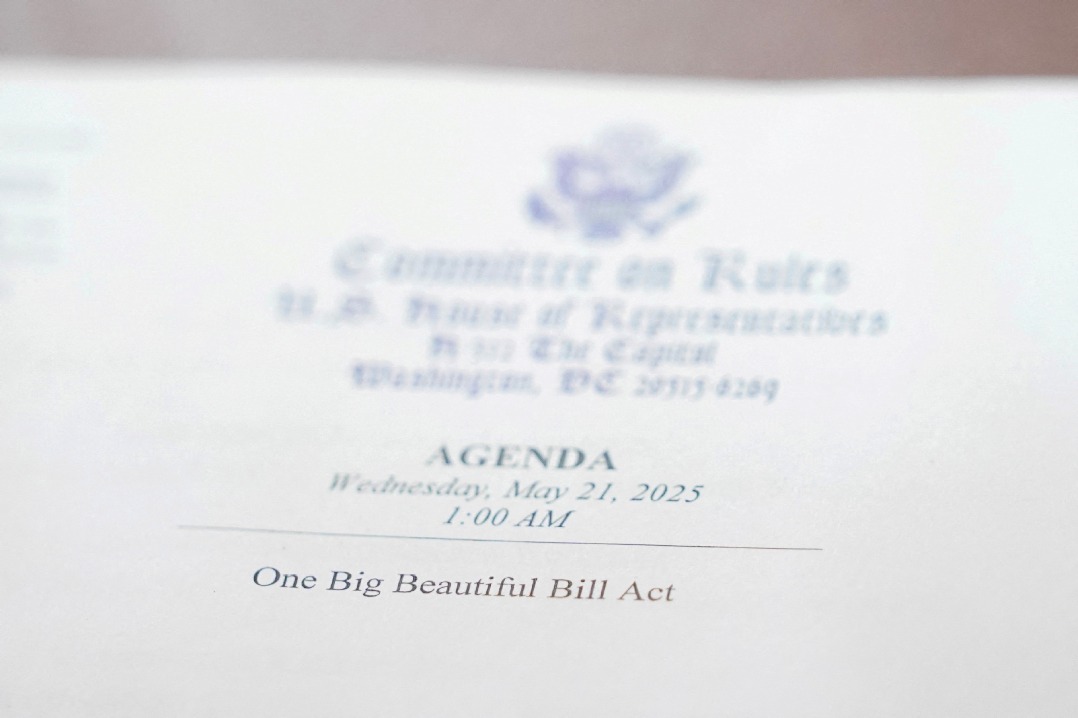Local govts in England face 'bankruptcy'

In April, the new financial year starts in England, and, for millions of households, that means the arrival of the council tax bill — money to be paid to local authorities to fund certain services.
And bills are set to rocket because a full-on local government funding emergency has erupted, with inescapable consequences for everyone across the country.
Health and defense are dealt with at a national level, but services such as street cleaning and maintaining parks are collected locally.
According to the Institute for Local Government, in 2014, 7 percent of tax collection in England was done at a local level, compared with 12 percent in Italy, 32 percent in Germany, and almost 50 percent in Canada, meaning local authorities are heavily reliant on central government funding. But between 2009 and 2019, those government contributions fell by 40 percent.
In 2009, in the aftermath of the global financial crisis, prime minister David Cameron, who left office in 2016 following Brexit, announced in a speech that "the age of irresponsibility is giving way to the age of austerity… a new culture of thrift".
The issue was largely ignored until the recent dam-burst, which has seen councils declaring bankruptcy and services facing bigger cuts than ever before.
Kevin Muldoon-Smith, an associate professor in strategic public-sector finance at Northumbria University, told China Daily that various factors had contributed to the crisis, the main one being central government funding cuts, resulting in "a whole system that exists on the margins of financial viability".
"The problem now is that trying to get hold of and fix local government finance is politically very painful. It's become less about consciously trying to reduce the state, more of a fear of the complexity of having to fix the problem," he said.
According to the Institute for Fiscal Studies' Green Budget, published in 2021, "driven by cuts in central government funding, English councils' noneducation spending per resident fell by almost a quarter in real terms between 2009-10 and 2019-20".
Clive Betts, chairman of the all-parties parliamentary Levelling up, Housing, and Communities Committee, told The Guardian that there was an "out-of-control" financial crisis in local councils across England.
"Councils are hit by a double harm of increased demands for services while experiencing a significant hit to their real-terms spending power in recent years," he said. "The government must use the local government financial settlement to help bridge the 4-billion-pound ($5 billion) funding gap for 2024-25 or risk already strained council services becoming stretched to breaking point."
In 2018, Northamptonshire County Council became the first local authority in 20 years to issue a section 114 notice — this quasi-bankruptcy step prevents any new council expenditure, other than on maintaining support services for the most vulnerable.
Since then, Slough, Croydon, Thurrock and Woking, all in the southeast of England, and two major Midlands metropolitan councils, Birmingham City and Nottingham City, have followed suit, while the Daily Mirror newspaper reported 40 more councils are at risk.
The most high-profile problem is in Europe's largest local authority, Birmingham, which provides services for more than 1 million people, and that has the second-largest Chinese population of any British city, after Manchester.
'Going bust'
In September, years of difficulties saw the council effectively go bust, with a deficit for the year of $110 million following a lost court case about unequal pay to council workers that cost it hundreds of millions of pounds.
Birmingham has been given special dispensation to raise council tax by up to 10 percent for each of the next two years, a move so drastic that it would usually require a local referendum.
On top of redundancies and cuts across council services, Birmingham council leader John Cotton apologized "unreservedly" to local residents during the meeting where the "devastating" budget was passed.
Following the passing of the budget, the council's Chief Executive Deborah Cadman announced she would step down after three years in the role, saying it had "always" been her "intention to leave the council once the budget was agreed, and we had a clear route to recovery and improvement… having led on the development of the council's new improvement and recovery plan, I feel that now is the right time to hand over the baton".
Nottingham City Council lost millions of pounds in a failed energy company venture and in February, the government appointed external commissioners to help run the council's finances at its own expense.
Early last month, council leader David Mellen told the BBC that councilors had voted to approve a harsh budget "with great reluctance", including a 5 percent council tax rise, cuts to services and redundancies to plug a deficit of $67 million.
"To have community protection officers in their streets, to have a voluntary sector that offers cheap play schemes to children and their families, all those things are a basic requirement of councils and those are the areas that we're having to cut today because of a broken care system that a number of prime ministers have said that they will fix but they haven't done it," he said.
Mellen also quit following the passing of the budget, telling the BBC "some people will say (the financial problem is) my fault — and they do — and others will see a bigger picture of the context in which I've been the political leader of the city council".
"Whether I've got everything right or wrong, others will judge, but I've been committed to the city that I've lived in for 40 years."
Muldoon-Smith of Northumbria University said the system is flawed.
"Central government tries to say it's down to local government mismanagement but this process has shown local government is not an independent being, it's inextricably part of an integrated system in terms of finance and management," he said.
"All international studies show countries where it works best have systems where different tiers of government know what they need to do.
"Overseas, local governments have much more access to other sources of income, like value added tax, income tax. In England it's reliant on council tax, property tax and central government transfers.
"This is a problem that can't be ignored, so we've moved from the stage of not thinking about it to the stage where people are starting to listen, but we're not quite at the solution stage yet," Muldoon-Smith said.
julian@mail.chinadailyuk.com
































